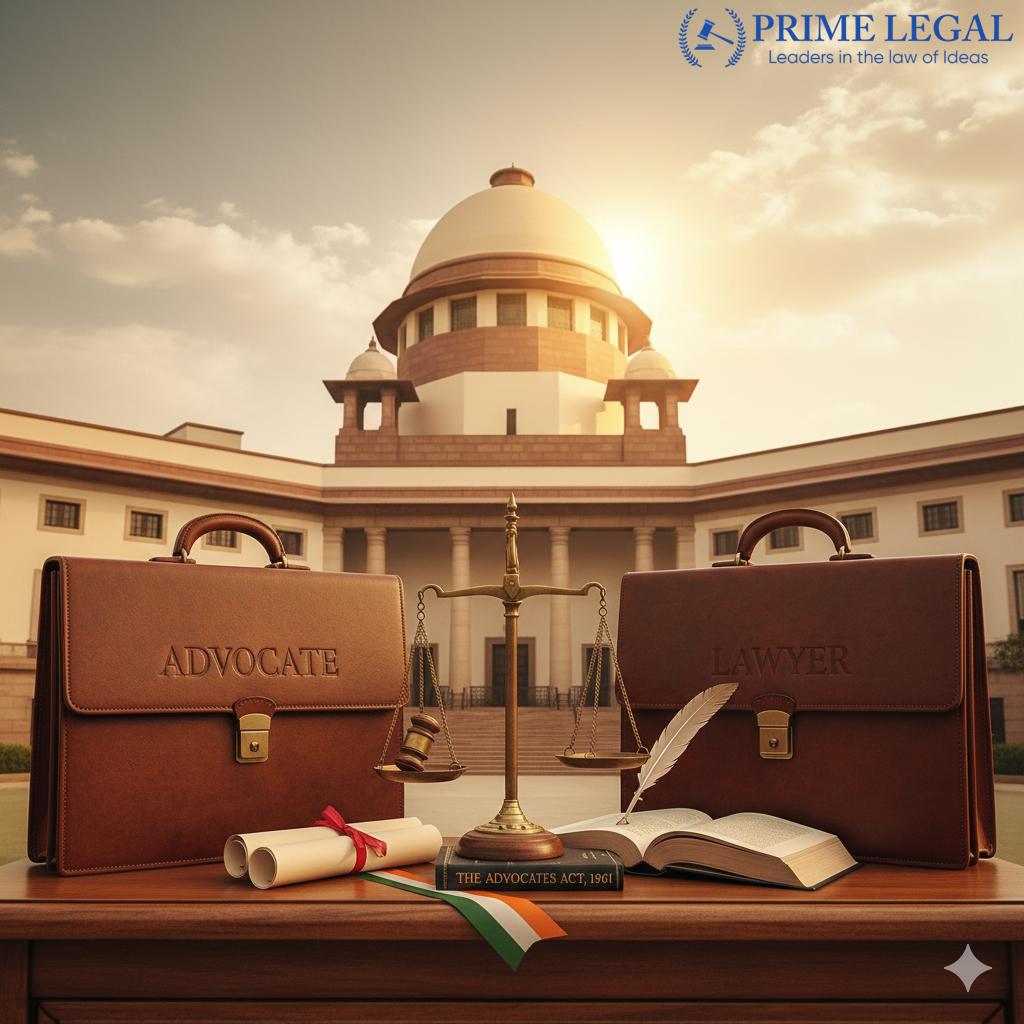INTRODUCTION AND BACKGROUND
The Advocates Act, 1961 stands as a bedrock upon which the legal profession evolved for the emergent needs of the contemporary Indian society. It abolished the earlier fragmentation of legal practitioners including barristers, pleaders, vakils, and attorneys and consolidated them into a single, unified class known as Advocates. This reform was far more than a matter of terminology as it was a declaration of fundamental principle that the right to practise law is a statutory and ethical privilege, not a mere outcome of legal education. This carved a distinction between merely holding a law degree and possessing the status of an advocate, making enrolment and professional independence the cornerstones of legal practice.
It is this fundamental principle that the Supreme Court recently reaffirmed in Suo Motu Writ Petition (Crl.) No. 2 of 2025, were a three-Judge Bench led by Chief Justice B.R. Gavai, Justice K. Vinod Chandran and Justice N V Anjaria examined the fundamental question—is every lawyer an advocate? The Court answered in the negative and held that persons possessing law degrees but employed as full-time, salaried legal advisors or in-house counsel do not qualify as “Advocates” under the meaning of the Act and, therefore, cannot claim protection under Section 132 of the BSA.
KEY POINTS
- According to Section 2(a) of the Advocates Act, 1961, Advocate is a person who is entered in any roll as provided under the provisions of this Act. Sections 29 and 33 of the same Act make it explicit that only those enrolled as advocates are legally entitled to practise before courts or other authorities. In contrast, the word lawyer has no statutory definition as it is used broadly to describe anyone who has studied law or is engaged in legal work. A law degree alone does not confer the right to practise law or to claim professional privilege. Hence, every advocate is a lawyer, but not every lawyer is an advocate within the meaning of the law.
- It is important to note that Rule 49 of the Bar Council of India Rules, bars practising advocates from accepting full-time salaried employment. Once a lawyer enters regular employment, they must notify the Bar Council and suspend their right to practise as an advocate for the duration of that engagement. The same was upheld in Rejanish K.V. v. K. Deepa (2025 SCC OnLine SC 2196), were it was upheld that advocacy is founded on independence. Importantly, it is a duty owed to the court. Hence, in-house counsel, being regular salaried employees, cannot be regarded as “Advocates” within the meaning of the statute.
- The distinction is based on the indispensable element of professional independence. Advocacy demands freedom of judgment and an undivided duty to the court and the client and such qualities cannot coexist within the confines of an employment relationship. Their professional judgment is inevitably influenced by their employer’s business interests and commercial strategies. Independence, is the very foundation of advocacy and the condition upon which professional privilege rests.
- This distinction makes it clear that privilege is not a personal right of the advocate but a safeguard meant to protect the client, arising from the advocate’s independent role. Only private correspondence between a client and an advocate who has been properly recognized by the Advocates Act of 1961 throughout the course of professional work is covered under Section 132 of the BSA, 2023. This privilege cannot operate as a blanket protection and it applies strictly where the advocate–client relationship is defined by independence, trust, and fiduciary duty.
- It is to be therefore noted that in-house counsel are not entitled to the protection of Section 132, as they do not fall within the category of “advocates practising in courts.” However, a limited protection exists under Section 134 of the BSA, 2023, which safeguards confidential exchanges between an employer and their legal adviser. This however does not amount to the professional privilege protected under section 132 of BSA. From this distinction, it is unequivocally proven that legal privilege arises from the advocate’s professional independence and ethical obligations, rather than from the mere possession of a legal title or corporate position.
RECENT DEVELOPMENTS
The recent decision of the Supreme Court in Suo Motu Writ Petition (Crl.) No. 2 of 2025 has pointed that in-house counsel do not fall within the category of “advocates” entitled to privilege under Section 132. Further, this distinction is of great significance at a time when the limits of legal profession increasingly extend into corporate domains.
CONCLUSION
This decision has far reaching effects including prompting both the Bar and corporate legal departments for clearer guidance on the status of advocates in salaried roles and a more cautious approach to maintaining confidentiality in internal legal communications. It could be concluded that the privilege of advocacy is inseparable from the duty of independence, and professional privilege is a solemn compact founded on independence and ethical responsibility, not an extension of corporate confidentiality.
“PRIME LEGAL is a full-service law firm that has won a National Award and has more than 20 years of experience in an array of sectors and practice areas. Prime legal falls into the category of best law firm, best lawyer, best family lawyer, best divorce lawyer, best divorce law firm, best criminal lawyer, best criminal law firm, best consumer lawyer, best civil lawyer.”
Written By- Amyukta Rajagopal


